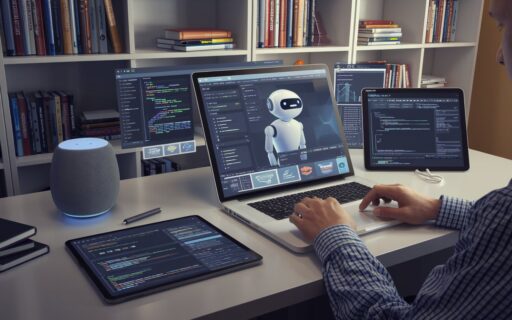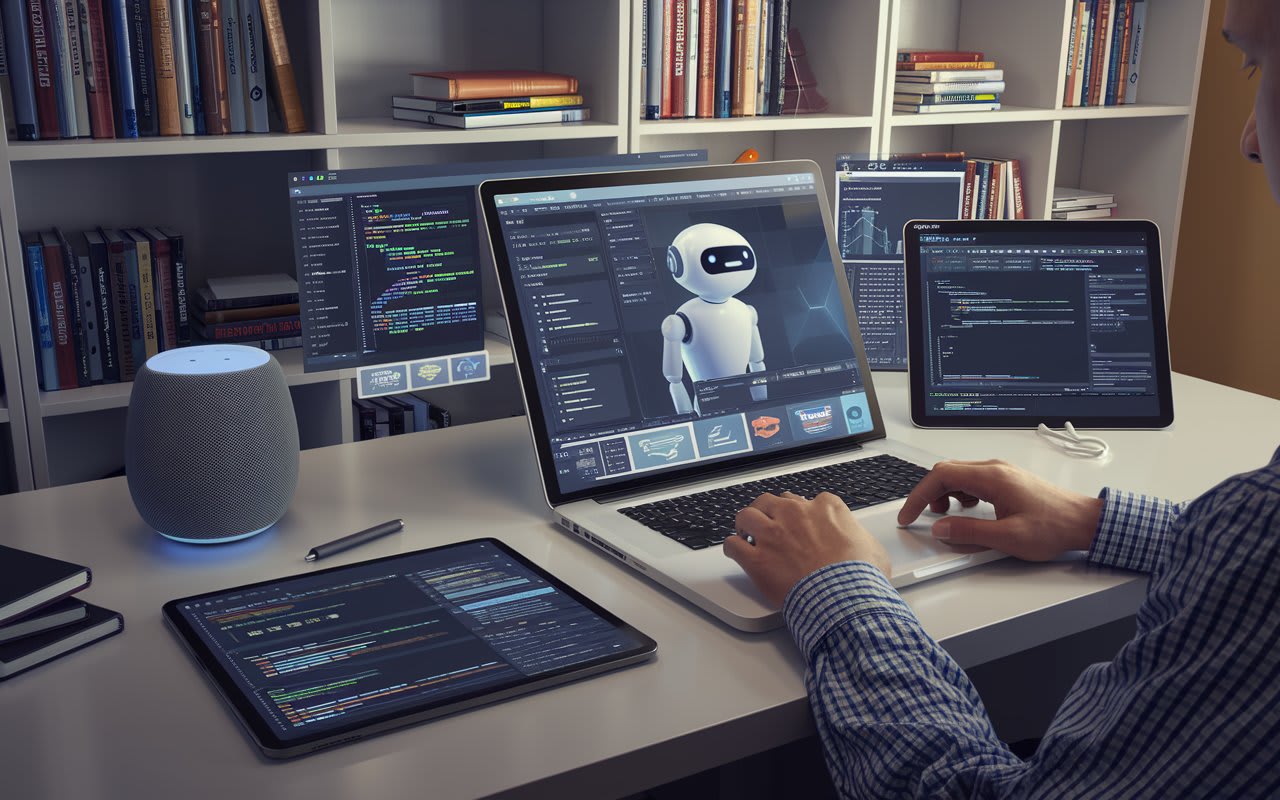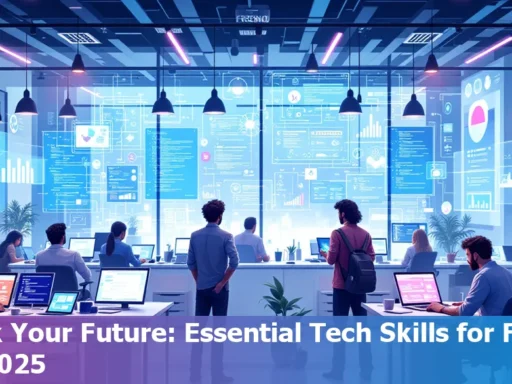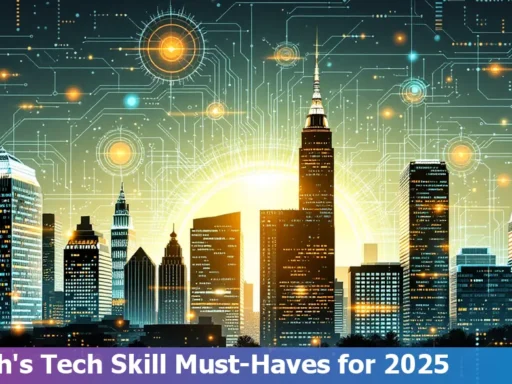Introduction
Artificial Intelligence (AI) is transforming various industries, and web development is no exception. From automated coding assistants to intelligent design tools, AI is streamlining workflows and enhancing user experiences. As we move into 2025, new AI-driven trends are set to redefine how websites are built, maintained, and optimized. This article explores the key AI trends shaping web development in 2025 and their potential impact on the industry.
1. AI-Powered Code Generation and Assistance
One of the most significant changes in web development is the integration of AI-driven coding assistants such as GitHub Copilot and Chat GPT. These tools help developers write and debug code more efficiently, reducing development time and minimizing errors.
Automated Code Completion: AI-powered tools suggest code snippets, reducing the need for manual coding.
Error Detection and Debugging: AI algorithms analyze code for errors and suggest fixes, improving code quality.
Enhanced Productivity: Developers can focus on higher-level tasks while AI handles repetitive coding processes.
2. AI-Driven Web Design and User Experience
AI is revolutionizing web design by enabling automated and adaptive user experiences. AI-driven design tools can analyze user behavior and preferences to create personalized web interfaces.
Automated UI/UX Design: AI tools generate layouts and design elements based on user data and industry standards.
Personalized User Journeys: AI analyzes user interactions to create tailored website experiences.
Adaptive Web Interfaces: Websites adjust dynamically to individual user preferences, enhancing engagement.
3. Chatbots and AI-Powered Customer Support
Customer service has greatly benefited from AI-powered chatbots and virtual assistants. These tools improve user engagement and provide instant support, reducing the need for human intervention.
24/7 Customer Support: AI chatbots can handle inquiries around the clock.
Natural Language Processing (NLP): AI understands and responds to user queries in a more human-like manner.
Efficient Issue Resolution: AI can categorize and resolve common issues, improving customer satisfaction.
4. AI-Optimized SEO and Content Generation
AI is playing a crucial role in search engine optimization (SEO) and content creation, helping websites rank higher on search engines and produce engaging content.
AI-Generated Content: AI tools like GPT-based models generate blog posts, product descriptions, and marketing copy.
SEO Automation: AI analyzes search trends and suggests optimizations for better ranking.
Voice Search Optimization: AI helps optimize content for voice search queries, which are increasingly popular.
5. AI in Web Security and Threat Detection
With cyber threats on the rise, AI is becoming essential for web security. AI-driven security systems can detect and respond to potential threats in real-time.
Automated Threat Detection: AI identifies vulnerabilities and security breaches before they cause harm.
Fraud Prevention: AI detects suspicious activities, such as phishing attempts and fraudulent transactions.
User Authentication: AI enhances security through biometric authentication and behavioral analysis.
6. AI-Enhanced Performance Optimization
AI is improving website performance by optimizing loading times, managing server resources, and enhancing the overall user experience.
Predictive Analytics: AI analyzes traffic patterns to predict and manage server loads efficiently.
Automated Performance Optimization: AI adjusts website elements in real-time for better performance.
Content Delivery Network (CDN) Enhancements: AI optimizes content distribution for faster loading speeds.
7. No-Code and Low-Code Development
AI-powered no-code and low-code platforms are making web development more accessible to non-developers. These platforms allow users to build and customize websites without extensive coding knowledge.
Drag-and-Drop Interfaces: AI simplifies the development process through visual tools.
Automated Backend Integration: AI connects databases and APIs seamlessly.
Faster Development Cycles: Businesses can launch websites and applications quickly with minimal technical expertise.
8. AI in E-Commerce Web Development
E-commerce platforms are leveraging AI to enhance shopping experiences, boost sales, and improve customer satisfaction.
Personalized Shopping Recommendations: AI analyzes user preferences to suggest relevant products.
AI-Driven Inventory Management: AI predicts demand and optimizes stock levels.
Visual Search and Image Recognition: AI enables users to search for products using images rather than text.
Conclusion
AI is set to redefine web development in 2025, offering more efficient, personalized, and secure digital experiences. From automating coding tasks to optimizing SEO and enhancing cybersecurity, AI-powered innovations are revolutionizing how websites are built and maintained. Businesses and developers who embrace these AI-driven trends will stay ahead of the curve, delivering smarter and more engaging web experiences for users worldwide.







